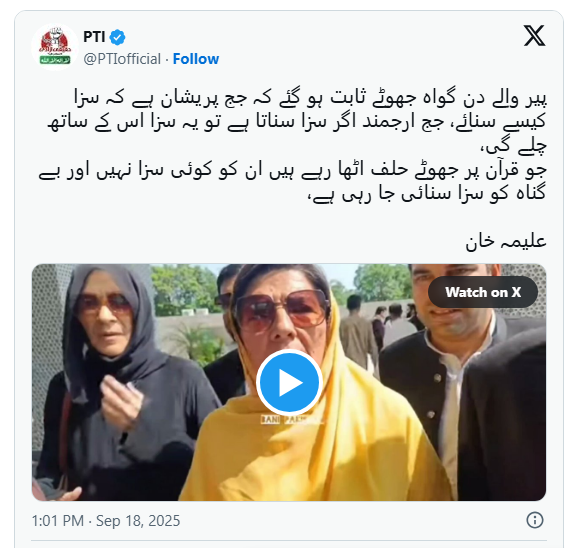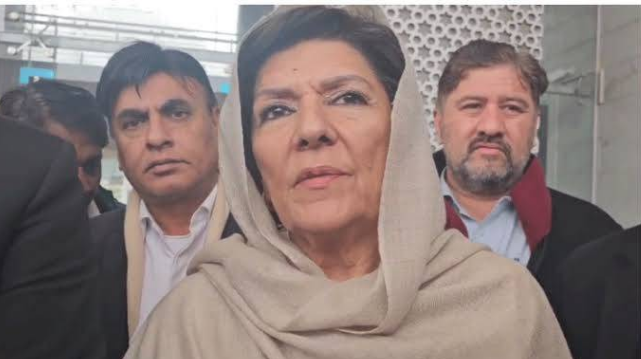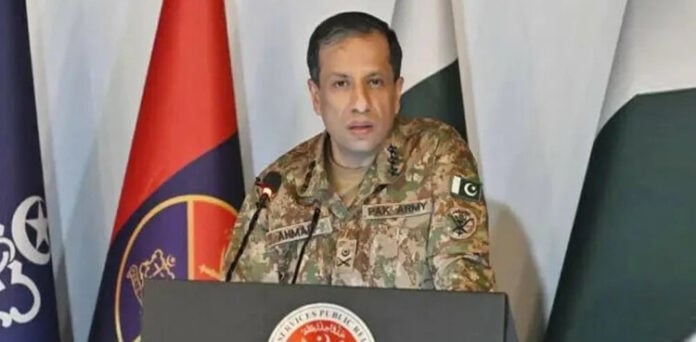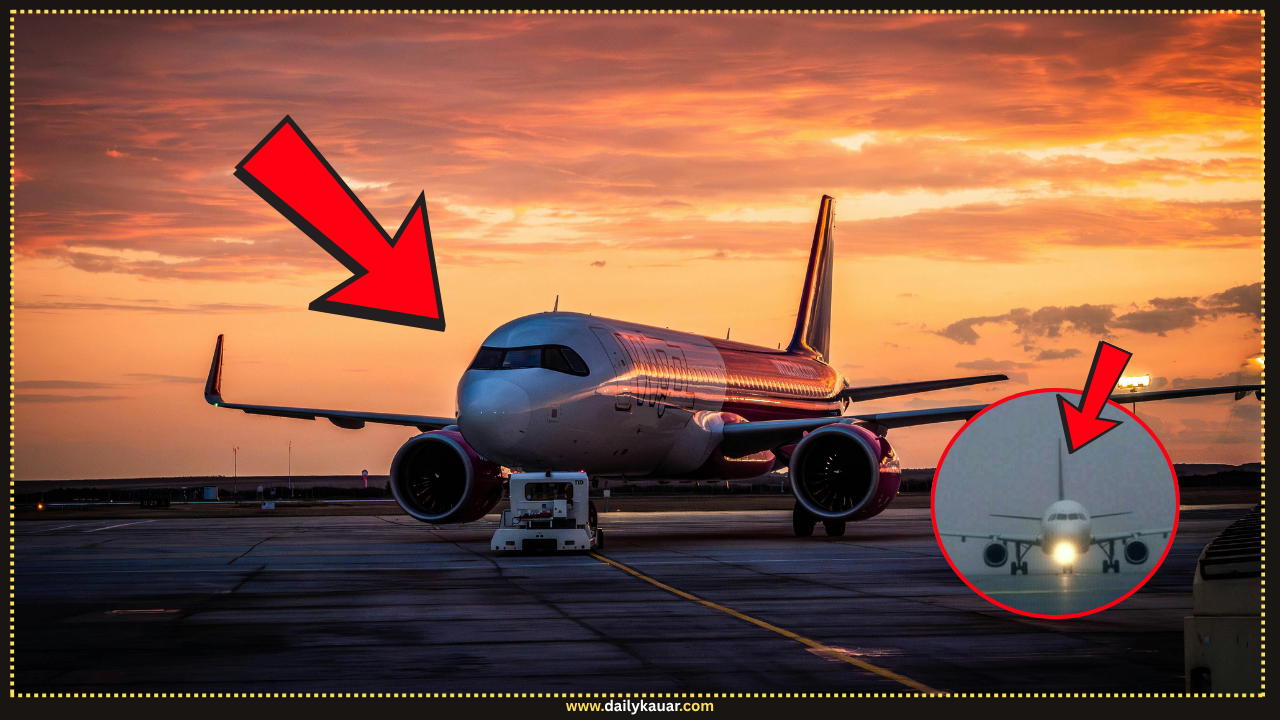Islamabad – Aleema Khan, sister of Pakistan Tehreek-e-Insaf (PTI) founder, has raised concerns over the ongoing Toshakhana-II case, claiming that the trial has lost credibility after witnesses were declared unreliable.

Statements from Aleema Khan
Speaking to the media on Wednesday, Aleema Khan said that even the presiding judge appeared to be in a difficult position regarding the verdict. “The judge is confused about how to announce a sentence because on Monday the witnesses were proven to be false,” she remarked.
She further criticized the judicial process, stating that individuals who allegedly lied under oath were being allowed freedom, while, according to her, innocent parties were at risk of conviction. “If the judge delivers a sentence, that decision will remain with him. Those who lied on the Holy Quran are free, and the innocent are being punished,” she added.
Blast at Border Taxi Stand in Chaman Kills Five, Injures Three
Legal Context of the Case
The Toshakhana-II case concerns alleged irregularities in the handling of state gifts. Aleema Khan argued that the trial should not have proceeded, as a related suspension case is still pending before the Islamabad High Court. “Another case regarding suspension of Toshakhana-II is in the Islamabad High Court but has not been heard. This case should never have continued, and once the witness gave false testimony, the matter should have ended there,” she said.
Samia Hijab Abduction Case Concludes After Reconciliation With Ex-Fiancé
Background on Toshakhana Cases
The Toshakhana reference cases have been a major point of political and legal contention in Pakistan, involving scrutiny of how gifts from foreign dignitaries were reported and handled by public officials. PTI leaders have consistently described the cases as politically motivated, while government representatives argue that the law must be applied equally.
The remarks by Aleema Khan add further political pressure to the already contentious Toshakhana-II case. Legal experts note that the Islamabad High Court’s pending proceedings may play a critical role in shaping the future course of the trial.



